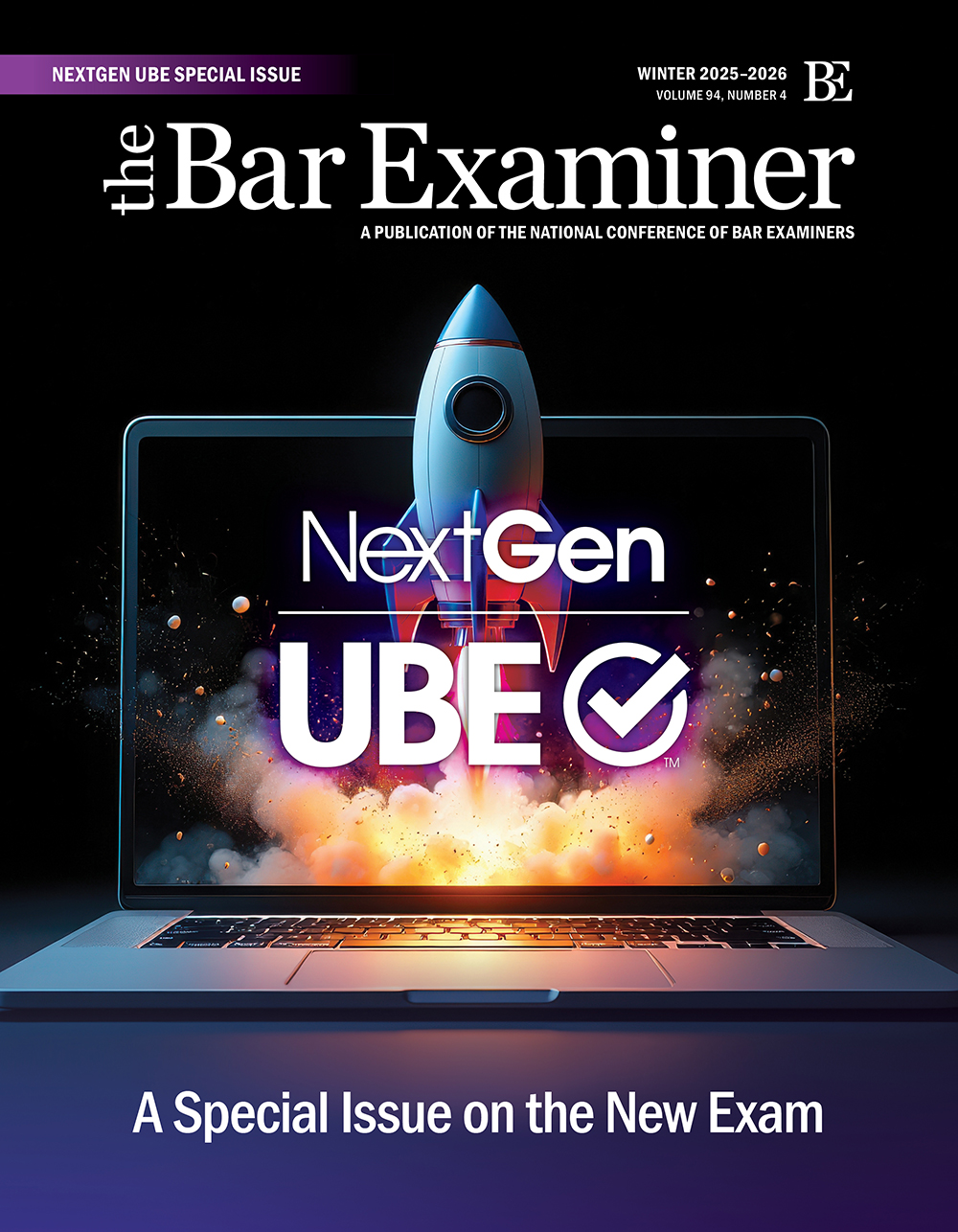This article originally appeared in The Bar Examiner print edition, Spring 2024 (Vol. 93, No. 1), pp. 73.
First, congratulations! Passing the bar exam is a significant achievement—you should be extremely proud.
As you tell your family, friends, and colleagues that you’ve passed, some will no doubt start calling you “counselor,” “attorney,” “lawyer,” or “esquire” right away. It’s important, though, that you (and your employer) not use any of these titles until you are certain that you are authorized to do so under the rules of your jurisdiction. Holding yourself out as an attorney before you are licensed falls under the category of “unauthorized practice of law”1 and is typically considered grounds for a character and fitness inquiry.
The Washington DC rules regarding unauthorized practice provide a helpful list of terms to avoid prior to your official licensure: “esquire,” “lawyer,” “attorney,” “attorney at law,” “counsel,” “counselor,” “counselor at law,” “contract lawyer,” “trial advocate,” “legal representative,” “legal advocate,” “notario,” and “judge.”2
In most jurisdictions, a quick call or email to an attorney’s ethics hotline can clear up any questions you have about when you can update your social media profiles and email signature. The American Bar Association maintains a list of jurisdiction contact information and other relevant resources on its website.3
So, update your resume, your LinkedIn page, your Instagram profile, and your email signature to tout your graduation (“Jane Doe, JD”) and your bar passage (“Passed Franklin Bar Exam, July 2024”), but be careful not to step over the line to calling yourself a lawyer, an attorney, counselor, or esquire until your court makes it official.
Notes
- See Victor D. López, “Unauthorized Practice of Law in the U.S.: A Survey and Brief Analysis of the Law,” 26 North East Journal of Legal Studies, art. 4 (Fall 2011), available at https://digitalcommons.fairfield.edu/nealsb/vol26/iss1/4. (Go back)
- DC App. R. 49, available at https://www.dccourts.gov/sites/default/files/matters-docs/rule49.pdf. (Go back)
- American Bar Association, Additional Legal Ethics and Professional Responsibility Resources” (last accessed April 8, 2024), available at https://www.americanbar.org/groups/professional_responsibility/resources/links_of_interest/. See also Comprehensive Guide to Bar Admission Requirements, Directory of Jurisdiction Bar Admission Agencies, available at https://reports.ncbex.org/comp-guide/directory/, for an up-to-date list of jurisdiction contact information. (Go back)
Contact us to request a pdf file of the original article as it appeared in the print edition.







